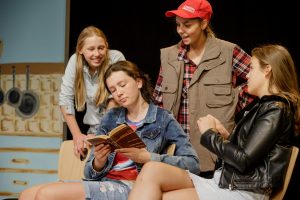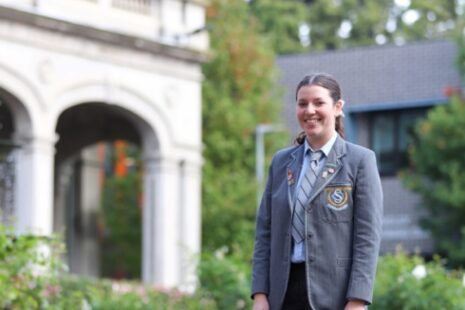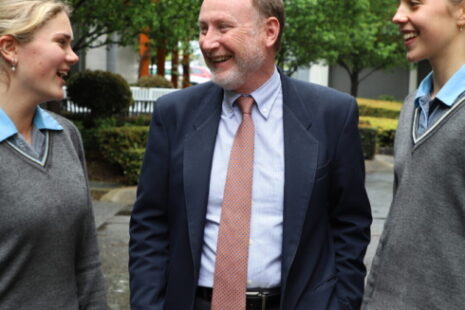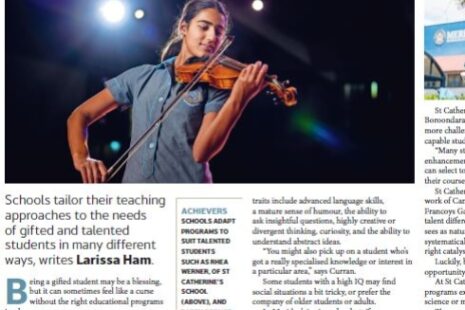Creativity: is it all in the mind?

There was a time when you would hear it said, “I can’t do that, I’m not creative” and people would accept that. What does ‘creative’ mean? Quite simply; the use of imagination to create something; inventiveness. Creativity can seem dangerous and challenging to many, because it usually means taking risks, being vulnerable and in a world where comfort and familiarity are attractive, being creative sits outside the box. With standardised testing, closed questions, and formulas that are meant to aid in success, creative thinking and learning can be lost.

Years 7 and 8 students performing ‘Hating Alison Ashley’
Arming students with the skills for creative thinking and learning is about survival. Industries and workplaces thrive on creativity. To put it simply, creativity = innovation = growth, which is what keeps today’s workplaces going, including schools. So how are we equipping the girls of St Catherine’s with the skills of creativity? Asking them to think and discuss without opinions or objections, whether it be in Drama, Music, Maths or History. Giving students the opportunity to work in groups to problem solve, collaborate and brainstorm. Alex Osborn, an American advertising executive, first developed brainstorming as a creative process when he found conventional business meetings inhibited the creation of new ideas. He also realised that it was better to boost and stimulate people’s creativity while they were still in school. In Year 7 and 8 Drama, each task centres on the premise: here is a text or poem or image, now make something with it. There are no two performances the same and yet each group achieves some degree of success. Through tasks like this, learning is visible. This encourages students to ask one another, what worked? What did not? How did they do this? Why did they not do that? Creative learning is not meant to sacrifice the importance of understanding a subject, but on the contrary work side by side to enhance and deepen understanding.
There is a misconception that creativity is only for the “creative” subjects – Music, Art and Drama. However, many subjects require different approaches to learning, creative learning. This learning may be: an oral presentation from the perspective of a character from a book in English; becoming a group of people from Medieval times in History; planting and monitoring the growth of plants in Science; creating a household budget that you have to manage for a period of time in Maths, and many more. Whilst there will always be the need for testing and assessments, it is important we also focus on creative teaching and learning so they can achieve success in all areas of education and their future. Building a positive environment and trusting relationships, it will become the new familiar.





